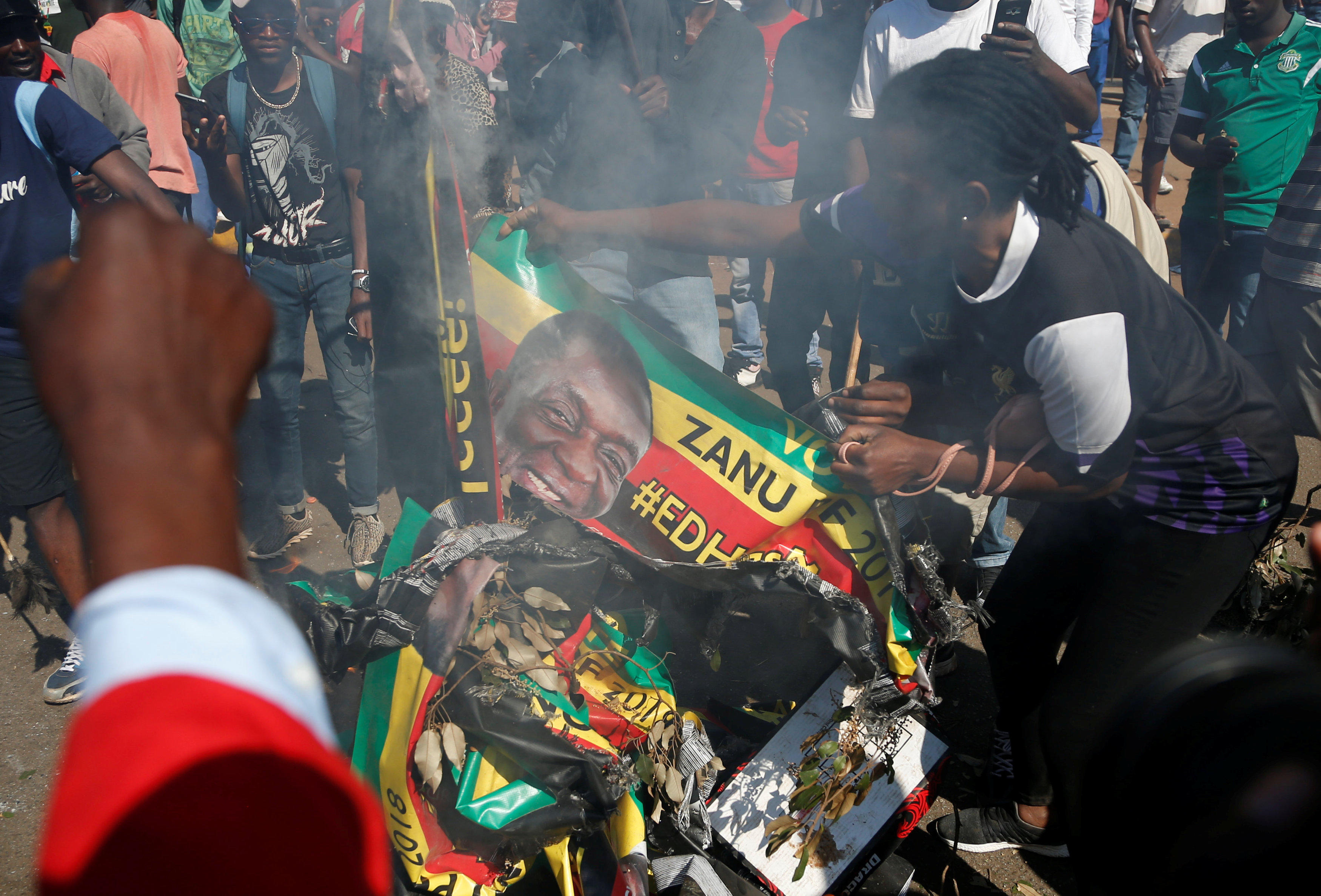Zimbabwe’s main opposition MDC party succumbed on Friday to pressure from what it labelled a fascist government, calling off a street protest as armed police set up roadblocks and barred access to its Harare offices.
Friday’s demonstration was to have been the first in a series planned by the Movement for Democratic Change (MDC), which accuses the government of corruption and economic mismanagement.
The protests are widely viewed as a test of how President Emmerson Mnangagwa, who has so far this year failed to make good on promises of political and economic reform, responds to dissent in a country tainted by a long history of repression.
Police late on Thursday banned the Harare event and said anyone taking part would be committing a crime, and a High Court judge early on Friday dismissed an application by the party to overturn that ban.
The ban, which the MDC would not appeal, had exposed the government’s “true colours,” party Vice President Tendai Biti told reporters outside the court.
“The constitution guarantees the right to demonstration … yet this fascist regime has denied and proscribed this right to the people of Zimbabwe,” he said.
“…We have jumped from the frying pan into the fire after the coup of November 2017… We don’t accept the conduct of this regime, the conduct of Mr Mnangagwa.”
Elected after the armed forces intervened to oust Robert Mugabe, Mnangagwa has said he aims to break with the long legacy of repression that characterised much of his predecessor’s 37 years in power.
But the economy is mired in its worst crisis in a decade, and Mnangagwa is struggling to convince the growing ranks of poor citizens that his government’s austerity measures and reforms can trigger a recovery.
Zimbabweans had also expected last year’s vote to usher in a new dawn of expanded political rights and an end to the country’s international pariah status, but instead, the elections left the country more polarised.
